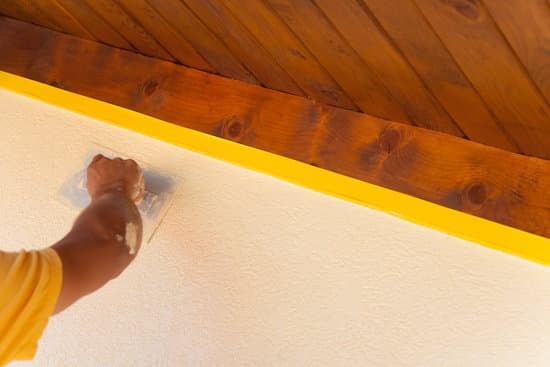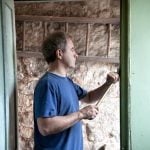Does home staging improve sales? Home staging is a crucial aspect in the real estate industry that cannot be overlooked. This article explores the significance of home staging in boosting sales, as well as its impact on buyer perception and emotional connection.
Home staging involves preparing a property for sale by enhancing its visual appeal through interior design, decluttering, and furniture placement. It aims to showcase the potential of a space and make it more attractive to prospective buyers. The process plays a vital role in creating a favorable first impression and influencing buyer decisions.
In this article, we will delve into the role of home staging in creating visual appeal, its impact on buyer perception and emotional connection, as well as statistical evidence and case studies that demonstrate how home staging can increase sales potential. Additionally, we will also address the cost-benefit analysis of home staging for sellers and provide tips and tricks for successful home staging.
Join us as we uncover the clear connection between home staging and improved sales results in the real estate market.
The Role of Home Staging in Creating Visual Appeal
Home staging plays a crucial role in creating visual appeal for potential buyers. By strategically arranging furniture, adding decorative elements, and optimizing the use of space, home staging can transform a property into an aesthetically pleasing and inviting space. The goal is to showcase the potential of the home and allow buyers to envision themselves living there. This visual appeal not only attracts more interest in the property but also significantly increases the likelihood of a successful sale.
One of the key aspects of home staging is depersonalizing the space while still infusing it with warmth and style. This balance ensures that the home feels welcoming and attractive to a wide range of potential buyers. Additionally, by highlighting the best features of the property through effective staging, sellers can create a lasting impression that resonates with prospective buyers on an emotional level.
Research has shown that homes that are professionally staged typically sell faster and for higher prices compared to non-staged properties. In fact, according to data from the National Association of Realtors, 83% of buyers’ agents said that home staging made it easier for their clients to visualize a property as their future home.
Furthermore, a survey conducted by the Real Estate Staging Association revealed that staged homes spent 73% less time on the market compared to non-staged homes. These statistics clearly demonstrate how essential visual appeal through home staging is in improving sales outcomes.
| Statistic | Percentage |
|---|---|
| Homes spend less time on market when staged | 73% |
| Homes selling for higher prices due to staging | 83% |
The Impact of Home Staging on Buyer Perception and Emotional Connection
Home staging plays a crucial role in creating an emotional connection and positive perception for potential buyers. By strategically arranging furniture, decor, and accessories, home staging can showcase the best features of a property and help buyers envision themselves living in the space. Here are some ways that home staging influences buyer perception and emotional connection:
- Highlighting the potential: Home staging allows sellers to present their property in the best possible light, emphasizing its potential and key selling points. By creating an inviting and attractive atmosphere, staged homes can make a lasting impression on buyers.
- Creating a sense of comfort: A well-staged home can evoke feelings of comfort, warmth, and coziness. This is especially important when it comes to connecting with buyers on an emotional level. When prospective buyers feel comfortable in a space, they are more likely to imagine themselves living there.
- Enhancing visual appeal: Effective home staging can improve the overall visual appeal of a property by decluttering, depersonalizing, and maximizing the use of space. This helps create a positive first impression and sets the stage for a successful sale.
By considering these factors and working with expert home stagers, sellers can significantly improve buyer perception and emotional connection, ultimately increasing their chances of making a successful sale. The impact of home staging on buyer perception should not be underestimated when considering how to effectively market a property for sale.
Statistics and Case Studies
When it comes to selling a home, first impressions are crucial. Home staging plays a significant role in increasing the sales potential of a property. Let’s take a look at some statistics and case studies that demonstrate the impact of home staging on improving sales results:
- According to a study by the National Association of Realtors, 83% of buyers’ agents agree that home staging makes it easier for buyers to visualize the property as their future home.
- In another survey conducted by the Real Estate Staging Association, homes that were staged prior to listing sold 73% faster than those that were not staged.
- A case study by a real estate agency found that staged homes received offers that were, on average, 10-20% higher than similar homes that were not staged.
These statistics and case studies clearly show the positive impact that home staging has on sales potential. By creating an attractive and appealing environment, staged homes are able to capture the attention of potential buyers and make a lasting impression.
In addition to these statistics, there are numerous real-life examples where home staging has resulted in higher sales prices and shorter time on the market. From small condos to luxury estates, the implementation of effective home staging techniques has consistently proven to increase sales potential and lead to successful real estate transactions.
The Cost-Benefit Analysis of Home Staging for Sellers
In addition, a survey conducted by the Real Estate Staging Association found that professionally staged homes spent 73% less time on the market than non-staged homes. This reduction in time on the market can result in significant cost savings for sellers, as they may avoid having to make additional mortgage payments, property taxes, insurance, and maintenance costs while waiting for their home to sell.
With these statistics in mind, it becomes clear that the financial benefits of home staging outweigh the initial investment.
It is also worth noting that home staging can be tailored to fit any budget. Sellers have options such as hiring a professional stager for a full-service transformation or taking a more DIY approach by decluttering, depersonalizing, and strategically rearranging furniture themselves. Ultimately, regardless of budget constraints, investing in home staging has been proven to improve sales results and should be seriously considered by all sellers looking to maximize their property’s appeal and value.
| Statistic | Percentage |
|---|---|
| Homes spent less time on the market with professional staging | 73% |
| Increase in dollar value offered due to staging | 23% |
The Process of Home Staging
Decluttering and Depersonalizing
One of the most important aspects of home staging is decluttering the space. Clutter can make a home feel smaller and distract potential buyers from seeing the true potential of the property. Sellers should consider depersonalizing their home by removing family photos, personal collections, and any items that may not appeal to a wide range of buyers. By creating a neutral space, potential buyers can envision themselves living in the home.
Enhancing Curb Appeal
First impressions are crucial when it comes to selling a home. Enhancing curb appeal is essential in drawing potential buyers into the property. Simple tasks such as freshening up the landscaping, painting the front door, and adding some potted plants can make a significant impact on how buyers perceive the property before they even step inside.
Creating a Welcoming Atmosphere
Finally, creating a welcoming atmosphere is key to successful home staging. This can be achieved through proper furniture placement, tasteful decor, and strategic lighting to showcase the best features of the home. Paying attention to details such as ensuring each room has a clear purpose and maximizing natural light can help create an inviting environment that resonates with potential buyers.
By following these tips and tricks for successful home staging, sellers can significantly improve their chances of making a quick sale at an optimal price point. The process of home staging has proven time and time again to not only attract more interested buyers but also increase the likelihood of receiving competitive offers. It’s clear that when done correctly, home staging does improve sales outcomes for sellers in today’s competitive real estate market.
Overcoming Common Objections to Home Staging
When it comes to selling a home, some sellers may have objections to the idea of staging their property. However, overcoming these objections is crucial in order to fully realize the benefits of home staging. Addressing common concerns and misconceptions can help sellers understand the value of staging and its impact on sales potential.
Myth: Home Staging Is Too Expensive
One common objection to home staging is the belief that it is a costly expense. However, sellers should consider the potential return on investment that staging can bring. Statistics show that staged homes not only sell faster, but they also typically sell for a higher price. In fact, the cost of staging is often much lower than the potential increase in sale price, making it a worthwhile investment.
Fear of Inconvenience
Some homeowners may be hesitant to stage their property out of fear that it will be inconvenient or intrusive. However, professional stagers are skilled at working with homeowners to minimize disruption while maximizing visual appeal. By working with a reputable staging company, sellers can ensure that the process is streamlined and effective without causing undue stress or inconvenience.
Belief That Their Home Looks Good as Is
Another objection to home staging is the belief that their home already looks good enough to attract buyers. However, what may be appealing to homeowners may not necessarily resonate with potential buyers. Staging helps to depersonalize and neutralize the space, allowing buyers to envision themselves living in the home. Overcoming this objection requires educating sellers on the difference between decorating for personal preference and staging for broad appeal.
Conclusion
In conclusion, the evidence strongly supports that home staging does improve sales results in real estate. By defining home staging and emphasizing its importance in creating visual appeal, we have seen how it can significantly impact buyer perception and emotional connection to a property. Statistics and case studies have consistently shown that homes sell faster and for higher prices when they are professionally staged, making the cost-benefit analysis clearly advantageous for sellers.
The process of home staging, as outlined in this article, provides valuable tips and tricks for success that can help sellers maximize their sales potential. Additionally, overcoming common objections to home staging can help reassure hesitant sellers of its effectiveness. Ultimately, the emphasis on the clear connection between home staging and improved sales results cannot be overstated.
Given the proven impact of home staging on increasing sales potential, it is clear that sellers should seriously consider investing in professional home staging services. The financial benefits far outweigh the costs, making it a worthwhile investment for those looking to effectively market their property. With the overwhelming evidence presented, it is evident that home staging plays a crucial role in improving sales results in real estate transactions.
Frequently Asked Questions
Does Staging a House Make It Sell Faster?
Staging a house can indeed make it sell faster. By decluttering, removing personal items, and adding attractive furniture and decor, potential buyers can envision themselves living in the space more easily.
Do Houses Sell Better Empty or Staged?
It is generally believed that staged homes sell better than empty ones. A staged home allows potential buyers to see the full potential of the space, whereas an empty home may feel cold and uninviting.
Do Staged Homes Sell 88% Faster?
According to some real estate experts, staged homes can sell up to 88% faster than non-staged homes. The visual appeal of a staged home can attract more potential buyers and create a sense of urgency, leading to quicker sales.

I’m thrilled to have you here as a part of the Remodeling Top community. This is where my journey as an architect and remodeling enthusiast intersects with your passion for transforming houses into dream homes.





